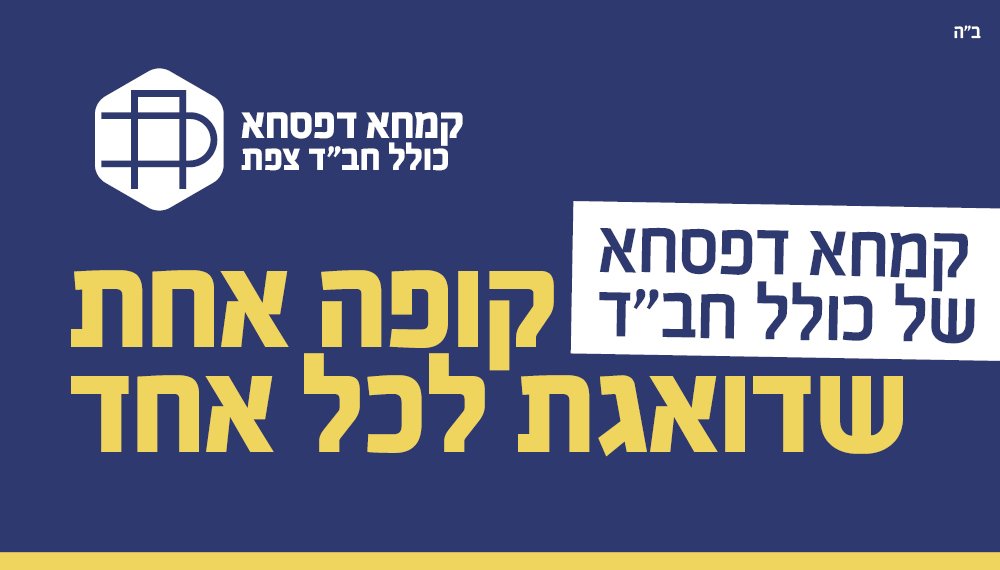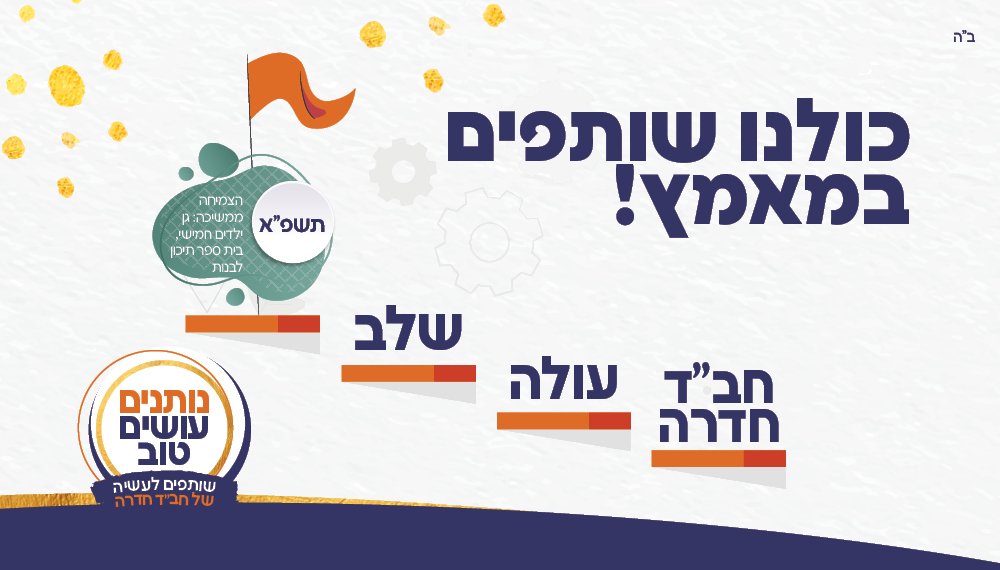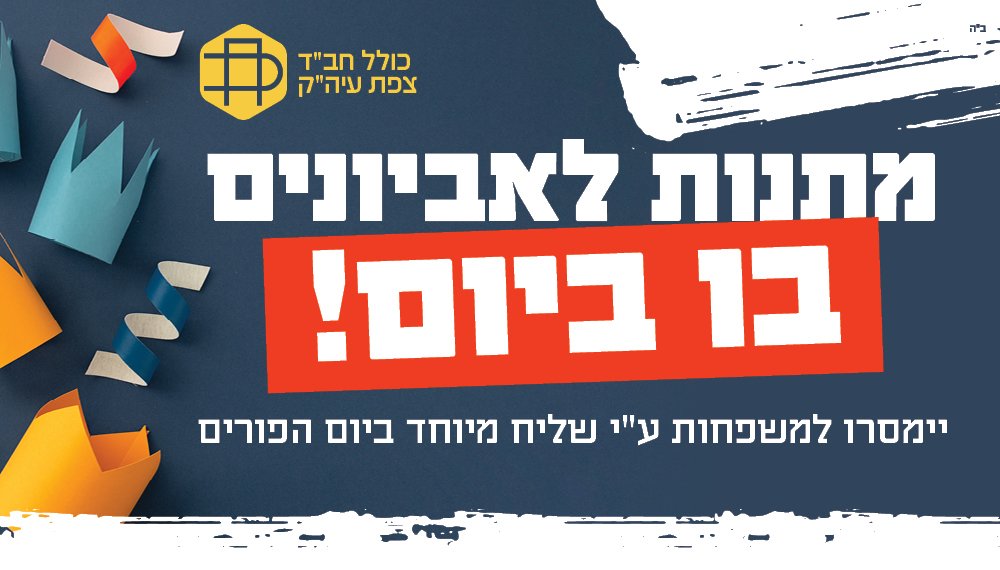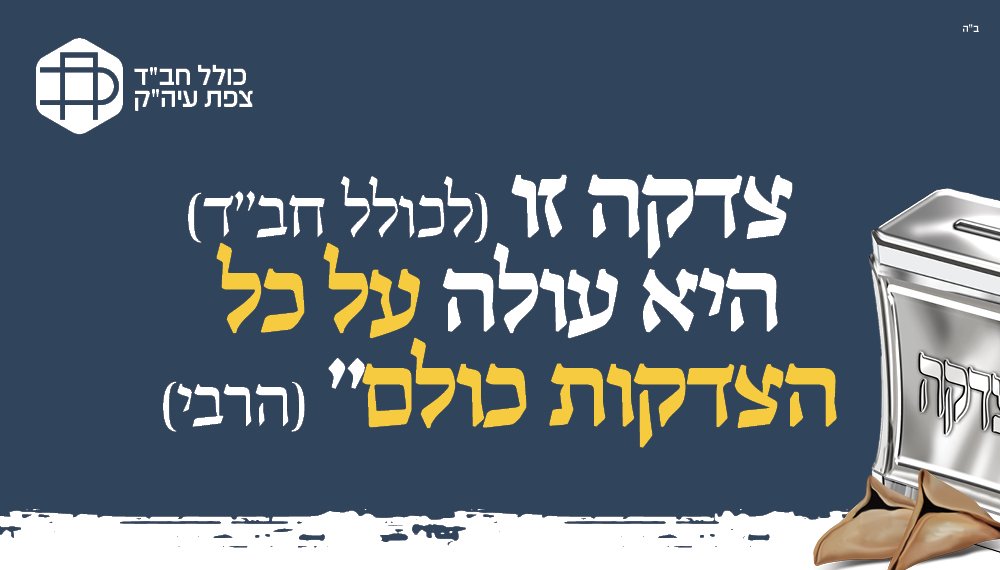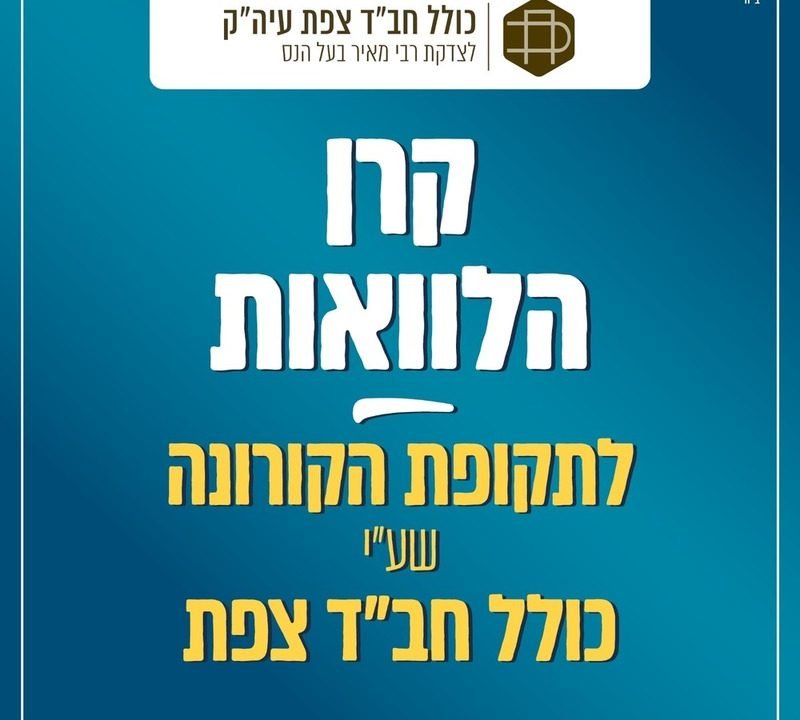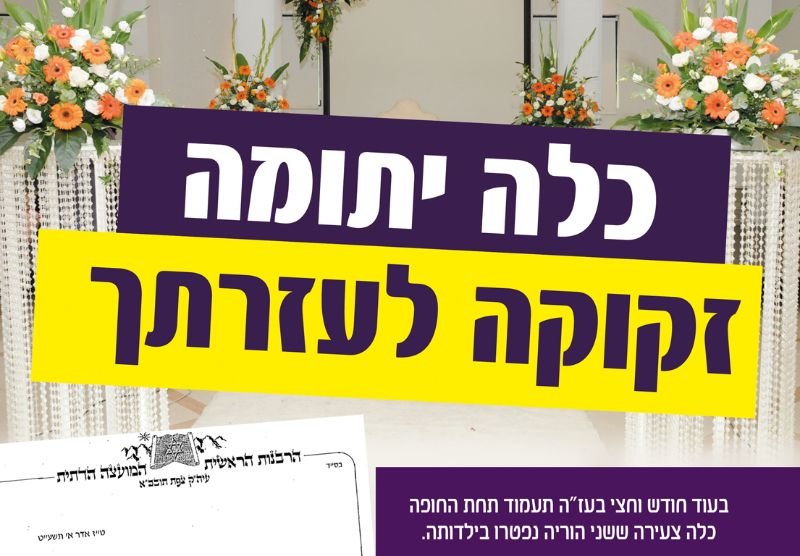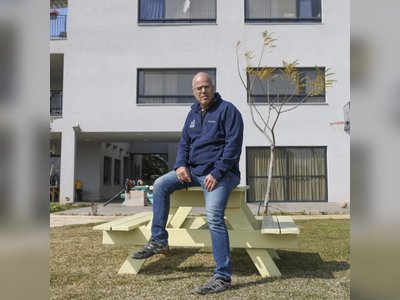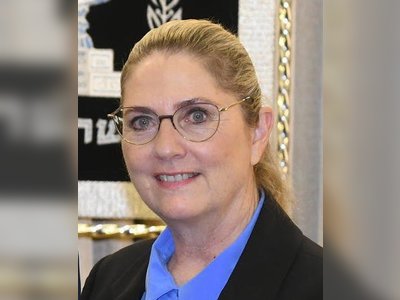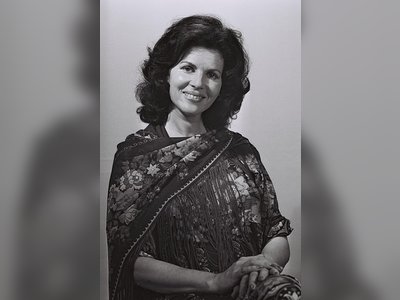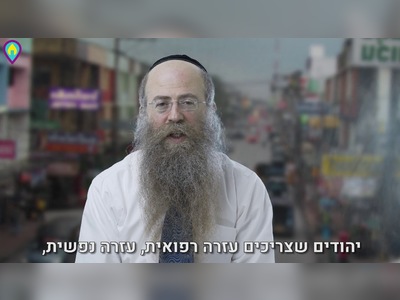מורשת גדולי האומה
בזכותם קיים
beta
Chabad Kollel: A Legacy of Compassion
Chabad Kollel, an organization dedicated to charitable endeavors, traces its roots back to 1805 when it was founded by the illustrious Chabad Chassidic leader, Rabbi Shneur Zalman of Liadi. The organization's primary objective was to provide practical assistance to Jewish residents of the Holy Land who were enduring severe economic hardship during that era. Today, it stands as one of the oldest and most venerable Jewish charity organizations in existence.
In one of the holy letters contained within his seminal work, "Tanya," Rabbi Shneur Zalman referred to Chabad Kollel as "Tzedakat Rabbi Meir Baal Haness," highlighting the organization's mission to emulate the righteousness of Rabbi Meir, who was known for his miraculous deeds.
Foundation
Prior to 1805, the venerable Rebbe, known as the "Alter Rebbe," served as the president of the charity fund for the Holy Land. However, a dispute between him and Rabbi Avraham of Kalisk left the Chassidim of Chabad in the Holy Land without financial support from the charity fund. As a result, they were compelled to relocate from Tiberias to Safed. In response to this dire situation, the Alter Rebbe established a new charity fund known as "Chabad Kollel."
Presidents and Administration
Over the years, Chabad Kollel was led by a succession of revered leaders, including the Alter Rebbe himself and subsequent Chabad Rebbes such as the Middle Rebbe, the Tzemach Tzedek, the Maharash, the Rashab, the Rayatz, and Rabbi Menachem Mendel Schneerson.
The administration of Chabad Kollel was primarily entrusted to its collectors, who were typically Chabad Chassidim traveling in Jewish communities worldwide to raise funds for the organization. Among these collectors were esteemed figures such as Rabbi Yitzchak Avigdor Ornstein, Rabbi Avraham Chaim Nahum, Rabbi Shneur Zalman Fradkin, Rabbi Shlomo Yosef Zevin, Rabbi Ezriel Zelig Salomon, Rabbi Eliezer Zelig Salomon, Rabbi Eliezer Nanes, and Rabbi Yosef Gedalia Ralbag. The organization's chief collector was Rabbi Shalom Dukhman, who operated under the leadership of the Lubavitcher Rebbe.
Chabad Kollel Ha'Me'uchad
After the passing of the Tzemach Tzedek, a dispute arose concerning the presidency of Chabad Kollel between the Chassidim of the Rashab and his nephew, Rabbi Shlomo Zalman Schneerson. In 1911, Rabbi Shmaryahu Noach Schneerson, a son of Rabbi Shlomo Zalman Schneerson, established "Chabad Kollel Ha'Me'uchad" and appointed Rabbi Chaim Eliezer Bickowski as its collector. Following the passing of Rabbi Shmaryahu Noach Schneerson in 1923, Chabad Kollel Ha'Me'uchad merged with the main Chabad Kollel, adopting the name "Chabad Kollel LeTzedakat Rabbi Meir Baal Haness" under the leadership of the Rayatz.
Activities of Chabad Kollel
Throughout its history, Chabad Kollel has been actively engaged in providing assistance to the residents of the Holy Land. Today, "Chabad Kollel" operates a vast network of aid and support programs in various aspects of life worldwide. It manages thirteen soup kitchens, distributing food to those in need across more than forty cities in Israel. Additionally, it operates day care centers, dental clinics, and a facility for severely disabled individuals in Migdal HaEmek known as the "Graveski Institute." The "Finger Center," a luxurious building in Jerusalem, caters to individuals with disabilities. The organization also offers financial assistance to struggling families, supports widows and orphans, aids victims of terrorism, and more.
Furthermore, Chabad Kollel operates "Gutnick Halls" in Jerusalem, two subsidized wedding halls where thousands of sons and daughters of Chabad Chassidim from around the world celebrate their Bar and Bat Mitzvahs. These events are often attended by government officials and public figures, including former Israeli Prime Minister Benjamin Netanyahu.
Chabad Kollel is the caretaker of a section of Chabad Chassidim's burial ground on the Mount of Olives. The organization manages the "Worldwide Tehillim Society" near the burial site of King David in Mount Zion, Jerusalem. It also publishes the "Luach Chabad Kollel," a comprehensive calendar used as a reference for customs and times observed in Jewish communities worldwide, which is distributed in synagogues and printed as a pocket-sized booklet.
Chabad Kollel, a venerable institution born out of compassion and dedication, continues to serve communities worldwide, reflecting the enduring legacy of Chabad Chassidut.
Foundation
Prior to 1805, the venerable Rebbe, known as the "Alter Rebbe," served as the president of the charity fund for the Holy Land. However, a dispute between him and Rabbi Avraham of Kalisk left the Chassidim of Chabad in the Holy Land without financial support from the charity fund. As a result, they were compelled to relocate from Tiberias to Safed. In response to this dire situation, the Alter Rebbe established a new charity fund known as "Chabad Kollel."
Presidents and Administration
Over the years, Chabad Kollel was led by a succession of revered leaders, including the Alter Rebbe himself and subsequent Chabad Rebbes such as the Middle Rebbe, the Tzemach Tzedek, the Maharash, the Rashab, the Rayatz, and Rabbi Menachem Mendel Schneerson.
The administration of Chabad Kollel was primarily entrusted to its collectors, who were typically Chabad Chassidim traveling in Jewish communities worldwide to raise funds for the organization. Among these collectors were esteemed figures such as Rabbi Yitzchak Avigdor Ornstein, Rabbi Avraham Chaim Nahum, Rabbi Shneur Zalman Fradkin, Rabbi Shlomo Yosef Zevin, Rabbi Ezriel Zelig Salomon, Rabbi Eliezer Zelig Salomon, Rabbi Eliezer Nanes, and Rabbi Yosef Gedalia Ralbag. The organization's chief collector was Rabbi Shalom Dukhman, who operated under the leadership of the Lubavitcher Rebbe.
Chabad Kollel Ha'Me'uchad
After the passing of the Tzemach Tzedek, a dispute arose concerning the presidency of Chabad Kollel between the Chassidim of the Rashab and his nephew, Rabbi Shlomo Zalman Schneerson. In 1911, Rabbi Shmaryahu Noach Schneerson, a son of Rabbi Shlomo Zalman Schneerson, established "Chabad Kollel Ha'Me'uchad" and appointed Rabbi Chaim Eliezer Bickowski as its collector. Following the passing of Rabbi Shmaryahu Noach Schneerson in 1923, Chabad Kollel Ha'Me'uchad merged with the main Chabad Kollel, adopting the name "Chabad Kollel LeTzedakat Rabbi Meir Baal Haness" under the leadership of the Rayatz.
Activities of Chabad Kollel
Throughout its history, Chabad Kollel has been actively engaged in providing assistance to the residents of the Holy Land. Today, "Chabad Kollel" operates a vast network of aid and support programs in various aspects of life worldwide. It manages thirteen soup kitchens, distributing food to those in need across more than forty cities in Israel. Additionally, it operates day care centers, dental clinics, and a facility for severely disabled individuals in Migdal HaEmek known as the "Graveski Institute." The "Finger Center," a luxurious building in Jerusalem, caters to individuals with disabilities. The organization also offers financial assistance to struggling families, supports widows and orphans, aids victims of terrorism, and more.
Furthermore, Chabad Kollel operates "Gutnick Halls" in Jerusalem, two subsidized wedding halls where thousands of sons and daughters of Chabad Chassidim from around the world celebrate their Bar and Bat Mitzvahs. These events are often attended by government officials and public figures, including former Israeli Prime Minister Benjamin Netanyahu.
Chabad Kollel is the caretaker of a section of Chabad Chassidim's burial ground on the Mount of Olives. The organization manages the "Worldwide Tehillim Society" near the burial site of King David in Mount Zion, Jerusalem. It also publishes the "Luach Chabad Kollel," a comprehensive calendar used as a reference for customs and times observed in Jewish communities worldwide, which is distributed in synagogues and printed as a pocket-sized booklet.
Chabad Kollel, a venerable institution born out of compassion and dedication, continues to serve communities worldwide, reflecting the enduring legacy of Chabad Chassidut.
- כולל חב"ד – ויקיפדיהhe.wikipedia.org
